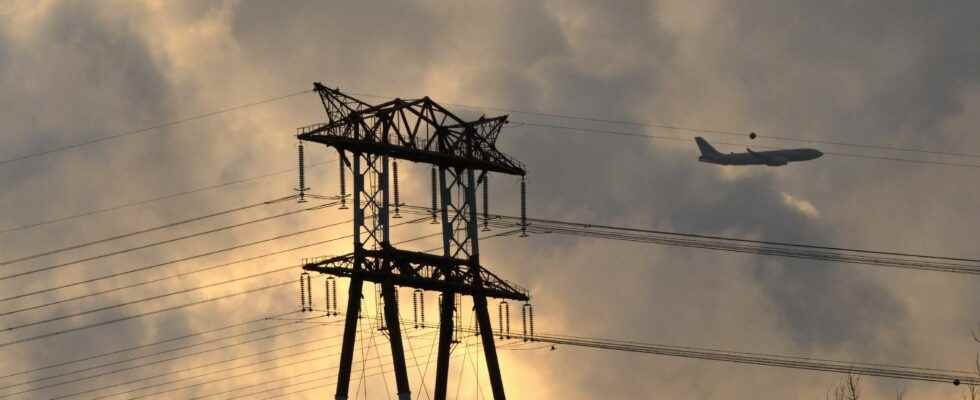Emmanuel Macron assured him from the beginning of December 2022: “We will hold out this winter”. No, there will be no power cuts this winter, promised the President of the Republic, while the state of the nuclear fleet and the prices of electricity posed this risk on French territory and that the government unveiled a plan to guard against it. Good news, the current data seems to prove him right.
“Most of the risks are behind us”, announced this Wednesday Xavier Piechaczyk the chairman of the executive board of RTE, manager of French high-voltage lines. Understand: a cut is now very unlikely, due to the drop in French electricity consumption, which has begun in recent weeks. By mid-December, this figure had reached 10%.
Consumption still falling
Last week, electricity consumption was 7.5% lower compared to the average of the previous five years, at the same period, according to RTE. This drop is close to 8% over the last four weeks. The network manager recalls that his calculation makes it possible to affirm that this drop is not due to the effects of a milder winter, but indeed to a change in the practices of households and businesses.
The French administration has also made an effort, also linked to promises of sobriety to fight against global warming. On a “representative sample” of more than 8,500 buildings in the state’s building stock, the ministry is advancing an 11.3% reduction in gross electricity consumption between November 2021 and November 2022, announced the Ministry of Health. Public service on Monday.
Objective 2023, and beyond
From there to cry victory, while the Russian state media portray the fantasy of a Europe forced to light up by candlelight, this winter and the next, in their propaganda spots? “There are still some risks if we go through a significant and long cold snap because the nuclear fleet will start to decrease”, nevertheless nuanced Xavier Piechaczyk. Zero risk does not exist, but we are getting closer.
But, already, all eyes are on the winter of 2023-2024, and more broadly on France’s energy sovereignty, while the shutdown of a large part of the French nuclear fleet this fall, and the drought had particularly hampered nuclear and hydraulic production and French autonomy. The Senate, with a majority in favor of a revival of nuclear energy, broadened the scope of the bill at first reading aimed at simplifying administrative procedures to promote the construction of new reactors near existing nuclear sites.
In concrete terms, if the text passes, the sites will be exempt from planning permission. The right of expropriation will be relaxed. Work on buildings not intended to receive radioactive substances may be started before the public inquiry is closed. The Senate will vote on the entire text in a solemn vote next Tuesday. The bill will then go to the National Assembly.
The year 2023 will be crucial for the energy future of France, which will have to enshrine in law the share allocated to each energy, and in particular nuclear, to get out of fossil fuels and achieve carbon neutrality in 2050. France “the first low-carbon industrial nation”, the government supports the construction of six new generation EPR reactors – the EPR2 -, with an option for eight others, while developing renewable energies (solar, wind, etc.)
